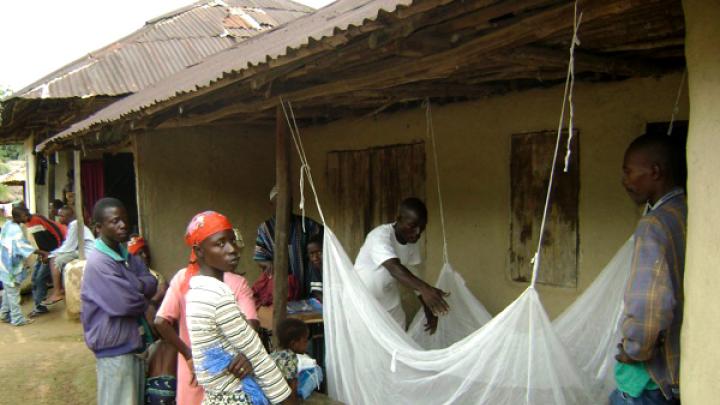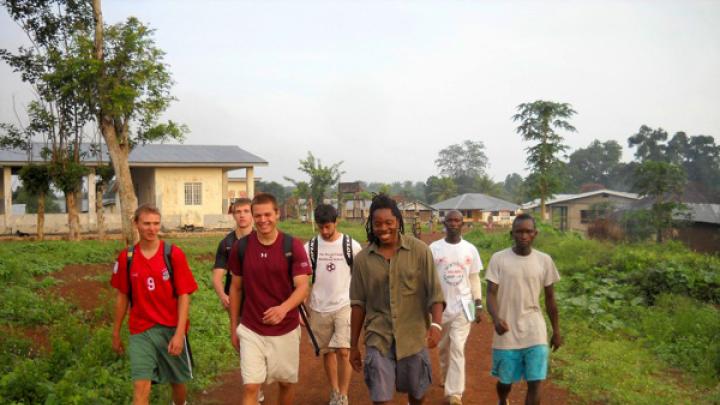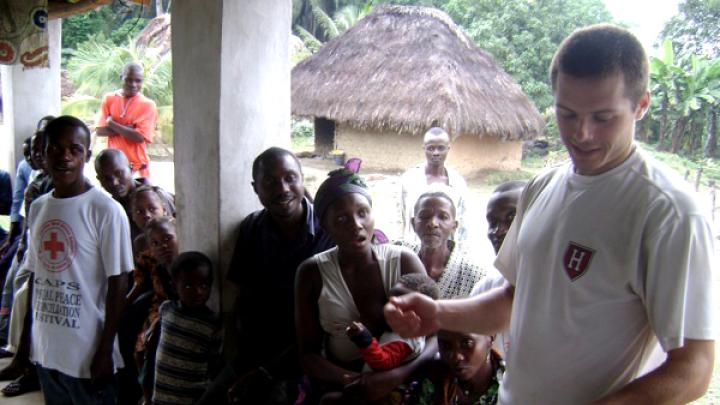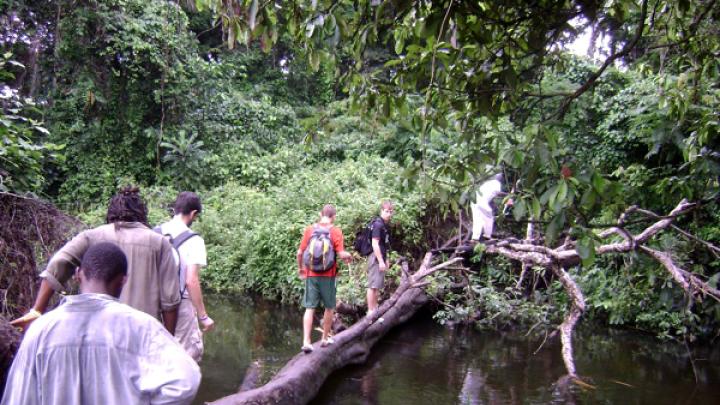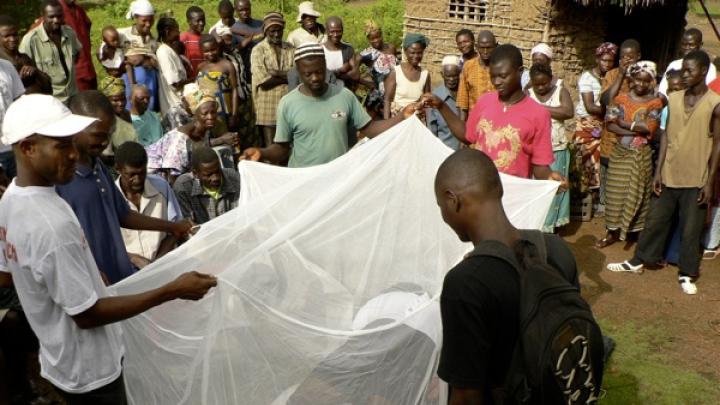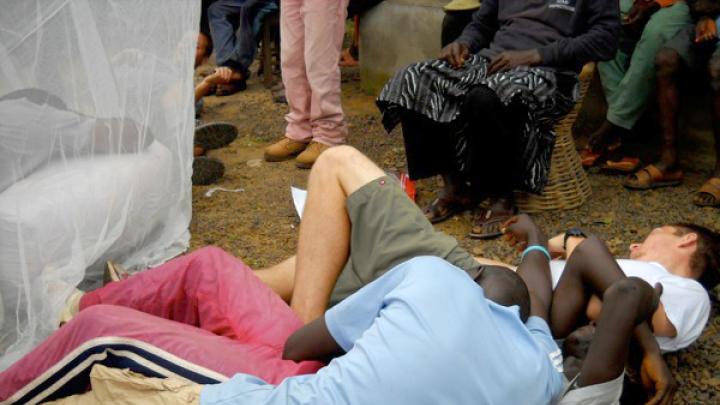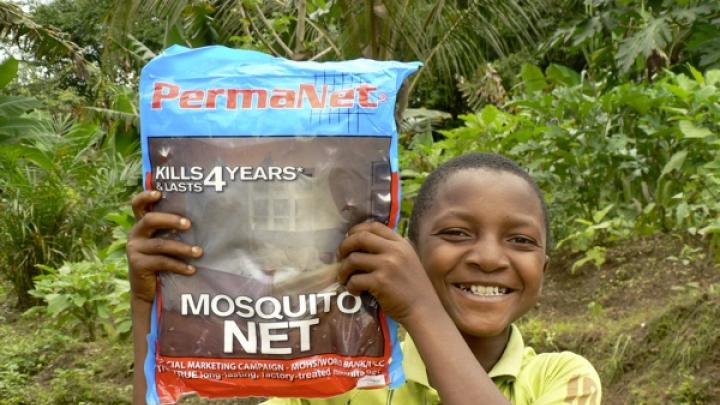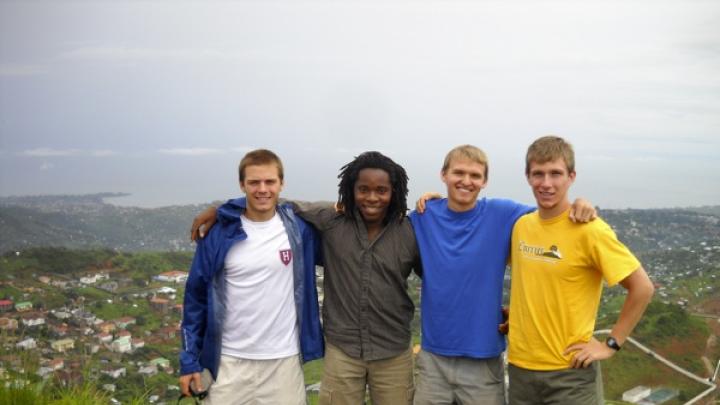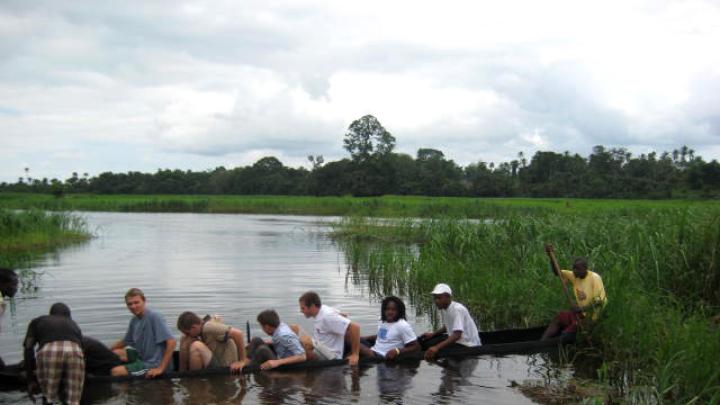David Sengeh ’10 has decided that the most important asset in development work is not experience. Nor is it training in economics, public administration, or medicine. What’s most important for development workers, he says, is humility.
Sengeh spent last summer in his native Sierra Leone, distributing bed nets to prevent malaria, a drain on adult productivity and economic growth as well as on children’s educational achievement. Through GMin, an NGO Sengeh and a high-school friend founded in 2006, he and 10 other young men—four Harvard students or recent graduates among them—distributed 4,000 nets to more than 1,000 households, nearly 9,000 people in all. During the course of the summer, Sengeh estimates that each of them walked 120 miles.
Their results thus far are heartening: a follow-up study of the households that received nets in 2007 found that 93 percent were using them, compared to rates below 50 percent for distribution campaigns by major humanitarian organizations. (Before-and-after numbers for malaria prevalence aren’t yet available.)
How did college students operating on a shoestring—GMin has spent less than $40,000 to date, raised almost entirely through charitable contributions from individuals—figure out how to improve on the models of those with far more experience and deeper pockets? Sengeh believes that those organizations failed to recognize that their strategies weren’t working. Following a UNICEF edict that pregnant women and children under the age of 5 were the most vulnerable groups, programs distributed only enough bed nets for those constituencies, meaning a household of 10 might get just one or two nets.
But in Sierra Leone, respect comes with age, so the best food and nicest sleeping spaces are reserved for adults. The nets were designed to go over beds, but children typically sleep on mats on the floor—meaning the nets were being used to protect parents instead. Sengeh says he heard relief-organization workers berate Sierra Leoneans for relegating their children to the floor. But cultural factors are difficult to change, so GMin’s approach skirted the issue by distributing bed nets to cover every sleeping space in each household, even if that meant reaching fewer households in all.
Sengeh, a biomedical sciences and engineering concentrator in Currier House, is glad to have taken courses that informed his startup projects, which also include distributing and testing microbial fuel cells in South Africa and Namibia, and an advisory role in the Sierra Leone youth center on which Elizabeth Nowak worked. (Sengeh took the Idea Translation course, and considers David Edwards a pivotal mentor.) But he says his work on the ground has been just as pivotal as any classroom experience: “I don’t consider it an extracurricular. It’s a class that’s situated in the world… If you want to learn about global health challenges, you go into the field and do it.”
Read the GMin blog
Read Sengeh’s blog from 2007, when he began the bed-net project
